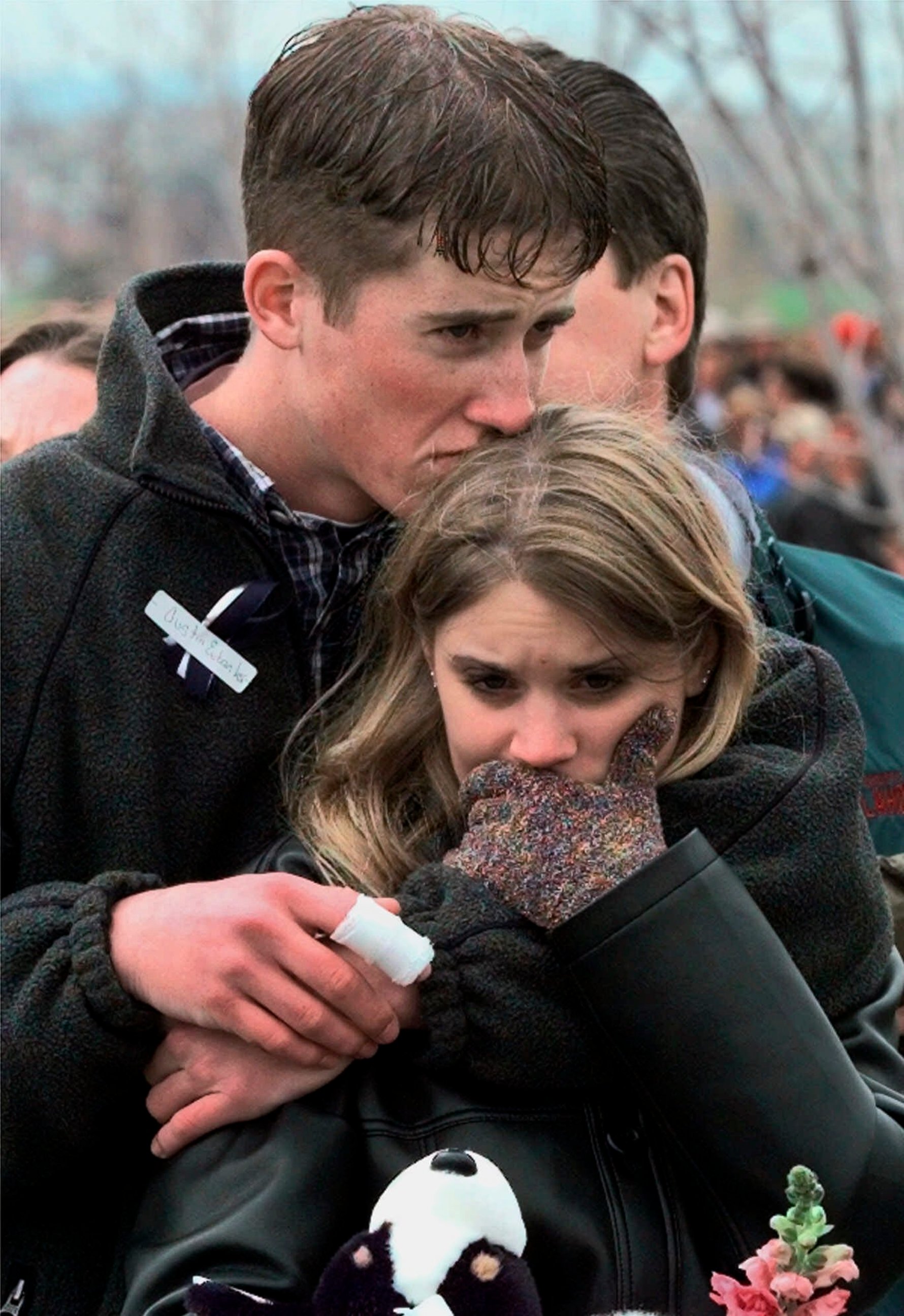Columbine High shooting survivor dies from 'the very disease he fought': Family
Austin Eubanks spoke publicly of becoming addicted to opioids after being shot.
He survived the Columbine High School mass shooting, but a 20-year battle with drug addiction that followed, one that Austin Eubanks had publicly said started with pills given to ease his pain from bullet wounds suffered in the 1999 rampage, has now cost him his life, his family said.
Eubanks, 37, was found dead in his home in Steamboat Springs, Colorado, on Saturday morning. While an autopsy is being conducted to determine the cause of death, his family says they already know what killed him.
He "lost the battle with the very disease he fought so hard to help others face," his family said in a statement.

Routt County Coroner Rob Ryg told ABC affiliate station KMGH-TV in Denver that Eubanks died sometime late Friday or early Saturday. He said no evidence of foul play was found in his home.
Eubanks had seemed to be in recovery from his addiction, speaking to millions of people across the nation about the ravages of opioids and the "emotional pain" he said doctors were failing to treat.
"As you can imagine, we are beyond shocked and saddened," his family's statement reads.
On April 20, 1999, Eubanks was in the library at Columbine High School in Littleton, Colorado, with his best friend, Corey DePooter, waiting for other classmates to go to lunch, when teenage gunmen Dylan Klebold and Eric Harris, launched what at the time was the worst mass shooting in U.S. history to occur at a high school.
"A teacher ran through the same door that we had just entered, yelling for everybody to get under the tables, that somebody had a gun," Eubanks recalled in a 2017 Tedx Mile High Talk. "I remember how I felt: I was confused, I was afraid, I felt sick and I was vulnerable. And just minutes later, I was playing dead underneath a table next to a pool of blood. I had just been shot and I witnessed my best friend murdered right in front of me as we were huddled together waiting for help to come."
Eubanks, then 17, was shot in the hand and leg in the rampage that claimed the lives of 12 students and a teacher, and ended with the gunmen taking their own lives.
"I often think back to my pain that day," he said in the Tedx Mile High talk. "And if I were to rate it on a pain scale, my physical pain would have been a 3 or a 4, and that was likely the response I offered when I was asked. But my emotional pain was an absolute 10. I was in agony beyond comprehension. But that was never asked, it was never talked about.”
Within an hour after fleeing the library, he was given sedatives in a hospital to relieve his pain.
"I was addicted before I even knew what was happening," Eubanks said, adding that prior to the day of the attack he had never drank alcohol or smoked marijuana.
In a 2016 interview with KMGH, Eubanks said he didn't seek help for his addiction until six years after the Columbine attack, and that it was another six years before he got sober.
"I was 29 years old before I found lasting sobriety and I think it took a level of maturity and willingness on my part to do what it takes and, for me, I had to change pretty much everything about my life," he told KMGH.
In numerous speeches and interviews, Eubanks used his story of survival and recovery to inspire others nationwide.
“I think that it's really important that -- not as survivors of trauma but survivors of addiction -- speak out and they share their story,” Eubanks said. “Just because you never know when your story is going to change the life of somebody else.”
Eubanks' death follows the apparent suicides of two students who survived the Feb. 14, 2018, mass shooting at Marjory Stoneman Douglas High School in Parkland, Florida, and the apparent suicide of a father whose young daughter was killed in the shooting rampage at Sandy Hook Elementary School in Newtown, Connecticut, on Dec. 14, 2012.
Calvin Desir, 16, and Sydney Aiello, 19, who both survived the Parkland shooting that killed 17 people, were found dead within a week of each other in March from apparent suicides, officials said.
On March 25, Jeremy Richman, 49, whose 6-year-old daughter, Avielle, was among the 26 children and educators killed in the shooting at Sandy Hook, apparently took his own life.
Richman appeared last year on ABC News' "10% Happier" podcast, telling host Dan Harris that losing Avielle was "infinite heartbreak."




